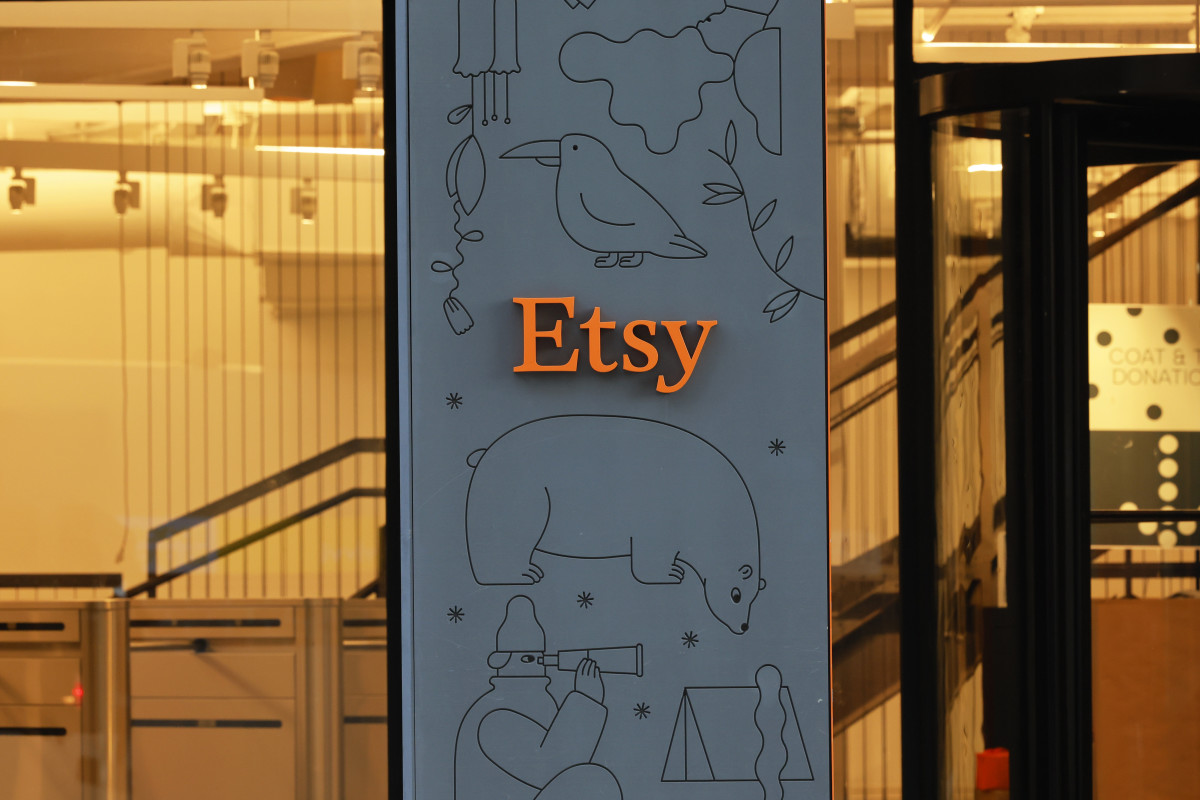
One of the great things about Etsy (ETSY) is that it's entirely different from most of the large online retailers one might peruse for a gift or something original.
Unlike some of the larger players in the the space, such as Amazon (AMZN) , Walmart (WMT) , and Target (TGT) , which offer brand names and consumer staples, Etsy specializes in bespoke and personalized items that retain a homemade and unique feel to them.
Related: Target drops a major brand partnership announcement
And while this may sound like a cute if not quaint idea, Etsy's bread and butter is actually big business. Its most recent Q4 earnings saw a 1.83% revenue beat to $842.3 million (up 4% from the year prior).
"By any measure, Etsy starts 2024 a much more meaningful e-commerce company than we were just a few years ago. We've doubled our buyer base, which has now grown on a year-over-year basis for four consecutive quarters. And buyers on average are still shopping more frequently and spending much more on Etsy now than they were before the pandemic," CEO John Silverman told analysts and reporters on the call.
Etsy focuses on one key area for growth
Despite its focus on personalized gifts and homemade crafts, which is understandably growing industry as more folks get married and have children each year, it's easy to understand why Etsy might be dwarfed by some of its larger online peers. Sure, it's digitally native, but so is Amazon, and it offers hundreds of millions of products and SKUs from name-brand paper towels to Apple AirPods. That's a tough market to compete in.
Unless, you don't.

Etsy is primarily in the consumer discretionary market, which means it primarily sells products that customers don't inherently need but rather enjoy spending their leftover dollars on because it's fun or non essential. This is a good business to be in when times are good and consumers want to share gifts to celebrate life's milestones. It's not always the best place to be in during an economic downturn, when almost every consumer staple from food to apparel is up and customers are particularly watchful of their budgets.
"It's been difficult to outgrow during the past few years, particularly given the tepid macro climate for consumer discretionary products," Silverman explained.
But Etsy sees this less as a challenge than as a puzzle that needs to be solved. Rather than competing with large incumbents for consumer attention (they'll always need to buy paper towels, and that business tends to have razor thin margins), Etsy sees more of a potential upside in convincing customers that they simply can't get better bespoke items anywhere else. And in way, they're right.
"Most other players are competing head-to-head to sell the exact same merchandise, focused on selling at $0.02 cheaper or shipping it two hours faster, and this has resulted in the commoditization of the entire experience. But that's just not Etsy," Silverman said. "While we have an opportunity to continue to enhance our offering to deliver on the table stakes e-commerce expectations, we also stand for something more: we offer something different in a sea of sameness."
In other words, Amazon and Walmart can squabble over the price of toilet paper and fulfillment times. But you can't get handmade tea cups with your dog's name and likeness on it from either of the two big boys. At Etsy, you can. And that is where it's bridging a gap in the market, it says.
"Highlighting the best stuff remains one of our top focus areas," Silverman said, adding later, “So it’s a very big focus of ours, to make sure that mass-produced items are not visible on the site. It’s bad for the brand. And it’s not helpful for our sellers in terms of price competition.”
And highlighting the best stuff is good for business. Etsy charges a 6.5% fee on every transaction, which is pretty remarkable considering that business is done entirely by vendors and Etsy doesn't have warehouses or delivery drivers to worry about. So one of its largest growth inhibitors (it doesn't offer consumer staples) is also one of its largest solutions (it doesn't get mired in shipping debates or logistical headaches). Instead, it focuses on what delights customers — personalized, gift-able things they wouldn't typically find at a big box store.







